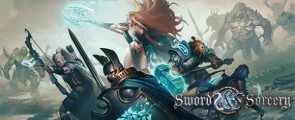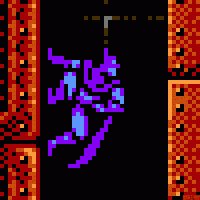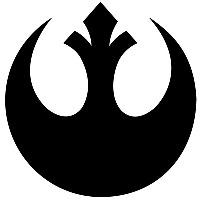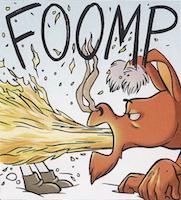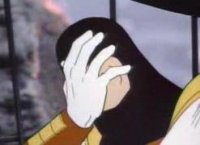A tale of soul and swords.
Ares Games' Sword & Sorcery caught my eye for two reasons. One is that is a follow-up to Gremlin Project's quite good Galaxy Defenders, which still to my mind offers one of the best sets of automated enemy mechanics in the modern dungeoncrawl genre. The other is that there is a bluntness to calling a game "Sword & Sorcery", an implicit promise of old-school, 1970s - 1980s style fantasy. This game brings forward concepts from Galaxy Defenders and couches them in a rather more complicated, more narrative design and it offers plenty of classic dungeon-plunging, hack and slash action so in some ways I got exactly what I expected out of this game and I have enjoyed- for better or worse- my time with it. It's difficult, quite frankly, to assess a modern dungeoncrawl game without comparing everything to Gloomhaven because it is in my opinion a generation-defining design that will influence and shape the genre for years to come. This doesn't mean that there aren't other good entries in this field of course and Sword & Sorcery is clearly a good one- and it may offer some differentiators that some may find desirable over its esteemed competition.
One of the more interesting concepts, and one that carries through the whole design, is that Sword & Sorcery is attempting to bring a little more RPG into the genre. Characters, who represent heroes recalled from death (hence the subtitle "Immortal Souls") and may reincarnate in either a "light" or "dark" version of the classes. This is roughly analogous to alignment, and it impacts some choices that you may encounter during the stories. Levelling up is based on earning Soul Points, and these increase your Soul Rank- this is all especially important if you play the scenarios as a campaign. As you rank up, more Innate and Standard and Talent Powers become available to you, and these can rank up as well. The game uses a pretty interesting cooldown mechanic, which means that the stronger powers may take longer to recharge- and you can choose to use powers at a lower rank in order to speed up the refresh. There is a strong sense throughout of very unique characters with distinct specializations that develop over the course of a few games or even in just a one-off scenario. It's also pretty cool that when you get killed, you continue on as a ghost until you resurrect at a Shrine- I don't think I've ever seen that in a game like this, and I'm fairly sure that Dark Souls was an influence here.
But in some ways, Sword & Sorcery hews closer to the rather aged Descent model and that may either make you come running or run screaming. I'm somewhat in the middle of that paradigm. The core gameplay is all about spending a budget of actions to move characters and perform various tasks including, of course, bashing monsters with various sharp, rigid, or magical implements. The combat system uses custom D8s that, like Descent, provide multiple pieces of resolution information- there are even surges that can be used to enhance actions. It's also an opposed roll, so defenders get to roll to block. As the game is combat-heavy, much of the rules emphasis is on the tactical possibilities allowed, which include things like immunities, vulnerabilities, and the notion "controlling" or "dominating" a map area by having more figures than the opposition and gaining an advantage. There are also a host of keyword effects and statuses that give the fights plenty of color.
As in Galaxy Defenders, the enemies spawn and are completely automated by event and enemy behavior cards that detail exactly what each baddie does. These cards allow for complex engagements where monsters will act different ways situationally, target specific characters, retreat, and perform a variety of attacks. Monsters can also be modified with enemy power cards, so it's not as much of a bummer that the base game doesn't include a lot of different monsters- sometimes a Gremlin may have an unexpected ability that makes him much more dangerous.
As for the stories, they are pretty typical hack and slash fare but much attention has been given to the narrative components. They take quite a bit to set up (at least as long as Gloomhaven, if we're again comparing notes there) and require a staged Event Deck as well as a separate "Book of Secrets" that is essentially the paragraph parts of the scenario. You go to the Book when you reach story events or waypoints that trigger decisions, surprise events, branching potentials, new objectives, and even new areas to explore that weren't there at the outset of the adventure. As in Galaxy Defenders, you can expect some cheeky and sometimes not very subtle references to fantasy movies and heavy metal. One of the Kickstarter bonuses, which I don't have, is actually a set of weapons from fantasy movies such as the Glaive from Krull (and the film Ready Player One). Cute.
I like the story format, but I'm not entirely sure it's worth the effort. I'd almost rather this game go straight up hack and slash with the storyline being "stab Gremlin/Orc/Raider, take their stuff". The action basics are solid and quite crunchy in terms of decision-making and options, but the addition of all of the story material and the administrative elements that they require almost overload the game. This is a pretty complicated affair overall with lots of components. It's ultimately a worthwhile effort and this is a good choice for a more traditional, old fashioned crawl that is a few tiers above something like the Dungeons & Dragons Adventure System titles in terms of depth and complexity.
As for the content, I think the base game feels thin if only because I'm aware of all of the additional material and options that were available to Kickstarter backers. Make no mistake, there is plenty in this box to get you going and the game. Seven scenarios of this game are going to take a while to get through, and there are plenty of treasures, events, and other elements. But throughout, it feels like there should be more of everything, but maybe that's just me going back to Gloomhaven and considering how that game is like a base game with all of the expansions included up front. Sword & Sorcery is receiving continued retail support from Ares such as the just released Arcane Portal expansion, which was provided to me with the base game.
I'm inclined to state that if you think Sword & Sorcery is for you and/or your group (it does play really well solo), that Arcane Portal should be part of your initial buy-in. This box includes four additional side quest-style stories for what is billed as Act I of the S&S saga, and it has an "infernal" theme running through its four new monsters, items, events, and other elements. It's required that your characters be Soulrank II or higher to take on these challenges, which lead up to a confrontation with...wait for it...THE HELLRAISER.
It feels not so much like an expansion as it does a completion of the base game. It makes it all feel broader and more fully realized, expanding the scope of what is on offer. The focus on certain types of enemies also gives the storyline in this section of the game a more concentrated, congruous feel. But with that said, it is worth noting that one of the more appealing differences between Sword & Sorcery versus other games in its relatively expensive genre is that the base game is pretty affordable, usually sold for under $60 at most online retailers. Arcane Portal puts the content on par with other, more expensive games in its class but evens out the price difference.
 Games
Games How to resolve AdBlock issue?
How to resolve AdBlock issue? 















